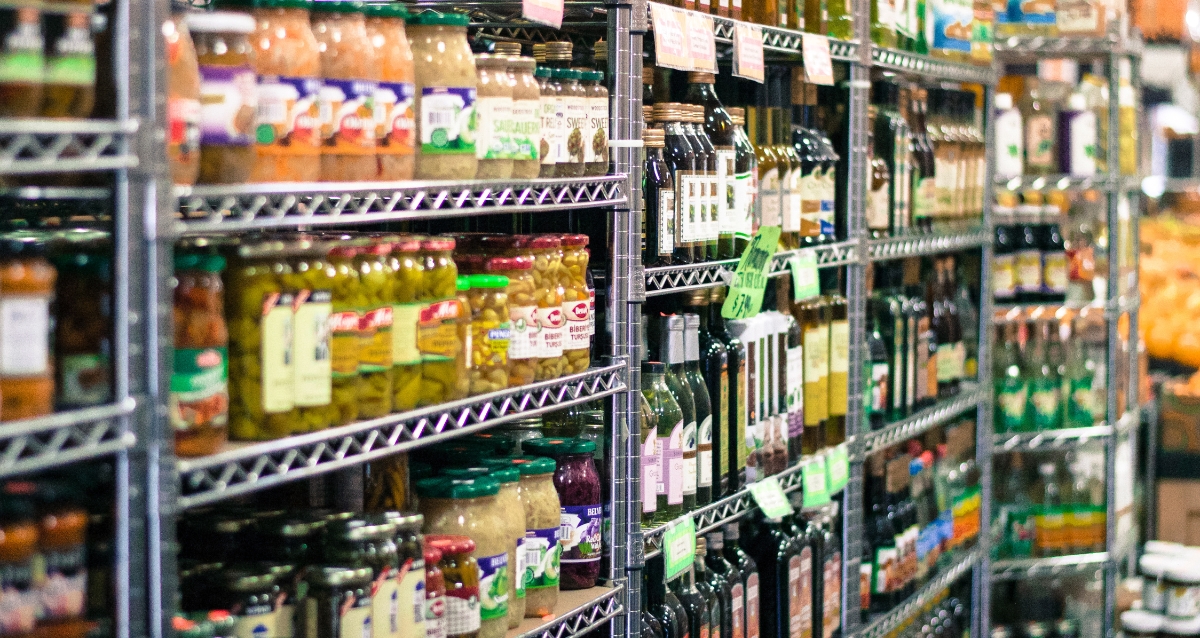
What Are Fast-Moving Consumer Goods (FMCG)?
Fast-moving consumer goods are products that sell quickly at relatively low cost. These goods are also called consumer packaged goods.
FMCGs have a short shelf life because of high consumer demand (e.g., soft drinks and confections) or because they are perishable (e.g., meat, dairy products, and baked goods).
These goods are purchased frequently, consumed rapidly, priced low, and sold in large quantities. They also have a high turnover when they’re on the shelf at the store.
KEY TAKEAWAYS
Consumer goods are products purchased for consumption by the average consumer. They are divided into three categories: durable, nondurable, and services.
Durable goods have a shelf life of three years or more, while nondurable goods have a shelf life of less than three years. Fast-moving consumer goods are the largest segment of consumer goods. They fall into the nondurable category, as they are consumed immediately and have a short shelf life.
Nearly everyone uses fast-moving consumer goods (FMCG) daily. They are the small-scale consumer purchases we make at the produce stand, grocery store, supermarket, or warehouse outlet. Examples include milk, gum, fruit and vegetables, toilet paper, soda, beer, and over-the-counter drugs like aspirin.
Slow-moving consumer goods, which have a longer shelf life and are purchased over time, include items like furniture and appliances.
FMCGs account for more than half of all consumer spending but tend to be low-involvement purchases. Consumers are more likely to show off a durable good such as a new car or beautifully designed smartphone than a new energy drink they picked up for $2.50 at the convenience store.
Types of Fast-Moving Consumer Goods
FMCGs can be divided into several different categories, including:
The Fast-Moving Consumer Goods Industry
Because fast-moving consumer goods have such a high turnover rate, the market is not only very large, it is very competitive. Some of the world’s largest companies compete for market share in this industry including Tyson Foods, Coca-Cola, Unilever, Procter & Gamble, Nestlé, PepsiCo, and Danone.
Companies like these need to focus their efforts on marketing fast-moving consumer goods to entice and attract consumers to buy their products.
That’s why packaging is a very important factor in the production process. The logistics and distribution systems often require secondary and tertiary packaging to maximize efficiency. The unit pack or primary package is critical for product protection and shelf life, and also provides information and sales incentives to consumers.
As investments, FMCG stocks generally promise low growth but are considered less risky, with more predictable margins, returns, and even regular dividends.
FMCGs are sold in large quantities, so they are considered a reliable source of revenue. This high volume of sales also offsets the low profit margins on individual sales.
Special Considerations
Fast-Moving Consumer Goods and Ecommerce
Shoppers across the globe increasingly purchase things they need online because it offers certain conveniences—from delivering orders right to the door to broad selection and low prices—that brick-and-mortar stores can’t.
In the past, popular goods for online purchase were related to travel, entertainment, or durable goods, such as fashion and electronics. However, the online market for groceries and other consumable products is growing as companies redefine delivery logistics efficiency and shorten delivery times.
While non-consumable categories may continue to lead consumable products in sheer volume, gains in logistics efficiency have increased the use of ecommerce channels for acquiring goods, including FMCGs.
What Are Consumer Packaged Goods?
Consumer packaged goods are the same as fast-moving consumer goods. They are items with high turnover rates, low prices, or short shelf lives. Fast-moving consumer goods are characterized by low profit margins and large sales quantities. Some products that fall within this group include soft drinks, toilet paper, and dairy products.
What Are 3 Types of Consumer Goods?
The three main consumer goods categories are durable goods, nondurable goods, and services. Durable goods, such as furniture or cars, last at least three years. Often, economists will watch durable goods spending to track the economy’s health. Nondurable goods are items with a shelf life of under three years and are consumed rapidly. Fast-moving consumer goods fall within this category. Finally, services include intangible services or products, such as haircuts or car washes.
What Are Some of the Largest Fast-Moving Consumer Goods Companies?
Nestlé, Procter & Gamble, and Coca-Cola are among the world’s largest fast-moving consumer goods companies. Swiss-based Nestlé, for instance, operates over 2,000 brands that cover everything from vitamins to frozen foods. Notably, the competition for market share is high within the fast-moving consumer goods industry. In response, companies focus heavily on packaging to attract customers and preserve the product’s shelf life and integrity.
Tarakki Career Solutions Private Limited (TCSs) is at the forefront of
workforce management solutions with more than 10 years of experience in the
industry.
Our attention has been drawn to the fraudulent recruitment activities by individuals posing as Tarakki Career Solutions or Employees of Tarakki Career Solutions, trying to trick candidates to part with large sums of money by promising them job offers.
These individuals are also wrongfully using the company’s registered trademark as well as using fake and copied website to legitimise their activities to lure innocent candidates to fall into this trap.
Tarakki Career Consultants does not charge any fee at any stage of its recruitment process from the candidates.
We would like to categorically state that these communications are purely made with the intent to defraud the candidates. The company has not authorised any individual to acquire any kind of payment from candidates, towards our company or towards any individual in the recruitment process.
If you have any questions or concerns, please contact career@tarakki.co.in